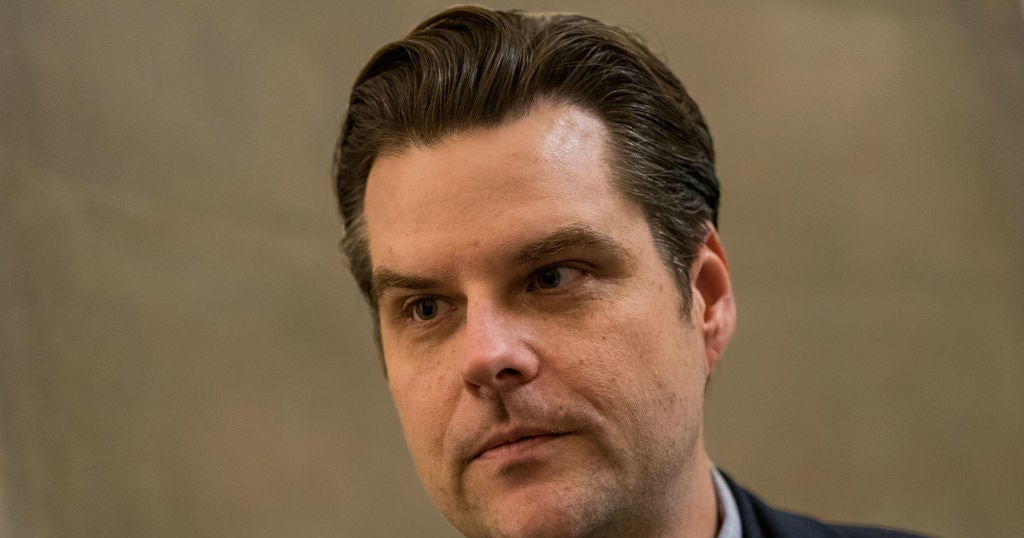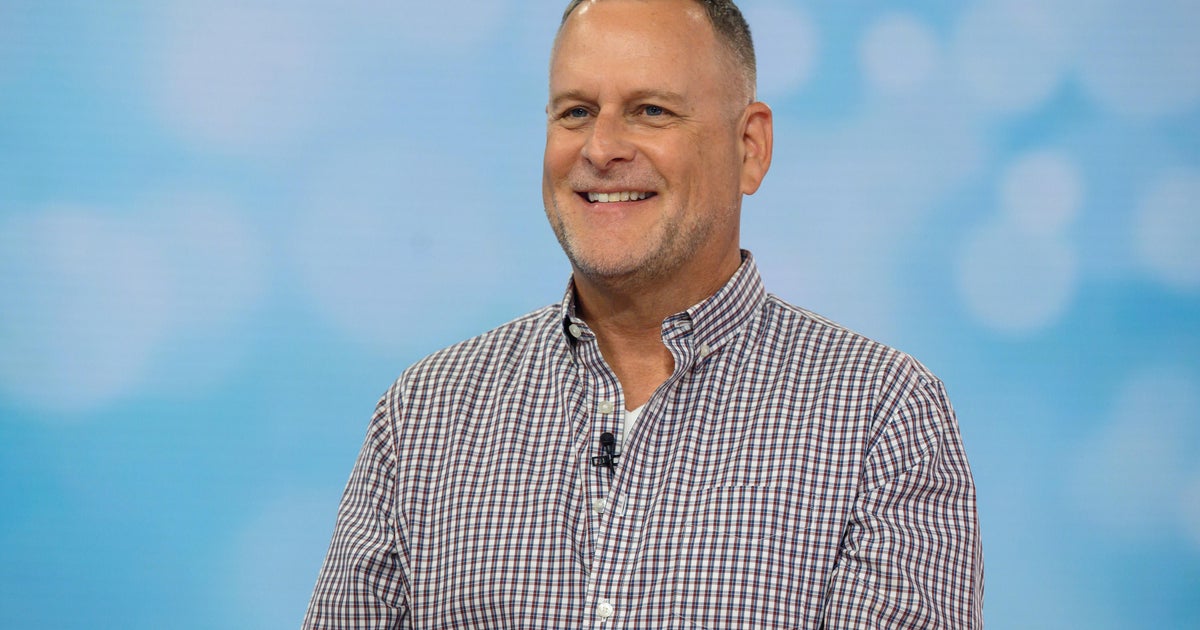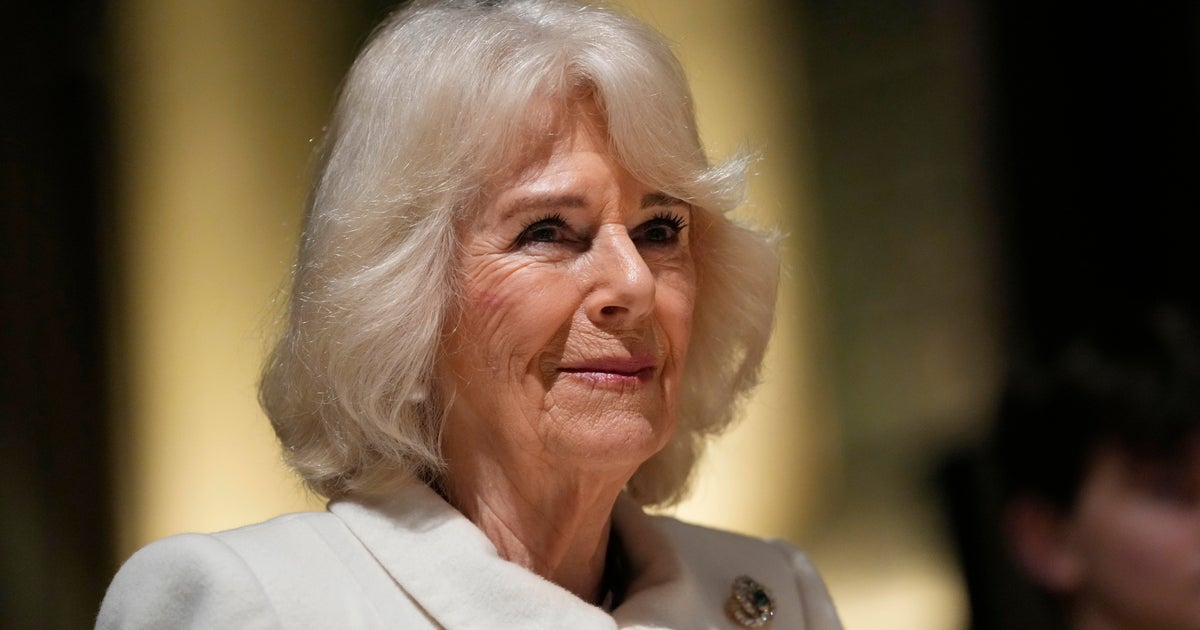CBS News
Small-town patients face big hurdles as rural hospitals cut cancer care

The night before her chemotherapy, Herlinda Sanchez sets out her clothes and checks that she has everything she needs: a blanket, medications, an iPad and chargers, a small Bible and rosary, fuzzy socks and snacks for the road.
After the 36-year-old was diagnosed with stage 3 breast cancer in December, she learned that there weren’t any cancer services in her community of Del Rio, a town of 35,000 near the Texas-Mexico border.
To get treatment, she and her husband, Manuel, must drive nearly three hours east to San Antonio. So they set an alarm for 4 a.m., which allows for just enough time to roll out of bed, brush their teeth and begin the long drive navigating dark roads while watching for deer.
Lisa Krantz for KFF Health News
About an hour before they arrive at the cancer clinic, the couple pulls over to quickly eat fast food in the car. The break gives Herlinda time to apply ointment on the port where the needle for her chemotherapy will be inserted.
“It numbs the area, so when I get to the infusion room the needle won’t hurt,” she said.
For rural patients, getting cancer treatment close to home has always been difficult. But in recent years, chemotherapy deserts have expanded across the United States, with 382 rural hospitals halting services from 2014 to 2022, according to a report published this spring by Chartis, a health analytics and consulting firm.
Texas led that list, with 57 rural hospitals — nearly half of those statewide that had offered chemotherapy — cutting the service by 2022, according to the analysis. Rural hospitals in states like Texas, which hasn’t expanded Medicaid, have been more likely to close, according to data from the Cecil G. Sheps Center for Health Services Research.
To keep the doors open, financially strapped facilities in small communities nationwide continue to shed basic health care services, like obstetrics and chemotherapy, said Michael Topchik, executive director of the Chartis Center for Rural Health.
“The data are staggering,” Topchik said. “Can you imagine feeling that sick, and having to drive an hour in each direction, or maybe more each direction, several times a week?”
Loss of chemotherapy services can signal other gaps in cancer care, such as a shortage of local specialty physicians and nurses, which is bad news for patients, said Marquita Lewis-Thames, an assistant professor at Northwestern University in Chicago whose research covers rural cancer care.
Rural patients are less likely to survive at least five years after a cancer diagnosis compared with their urban counterparts, concluded a study co-authored by Lewis-Thames and published in JAMA Network Open in 2022. While the rural-urban survival gap narrowed over the nearly 40 years researchers studied, the disparity persisted across most racial and ethnic groups, with only a few exceptions, she said.
Many cancer drugs are now given orally and can be taken at home, but some treatments for breast, colon and other common cancers must still be administered intravenously inside a medical facility. Even distances of an hour or two each way can strain patients who already may be coping with nausea, diarrhea, and other side effects, physicians and patient advocates said.
“It’s pretty uncomfortable for some of these patients who may have bone metastases or have significant muscular pain and have to sit in the car that long and hit road bumps,” said Shivum Agarwal, a family physician who practices in rural communities an hour west of Fort Worth, Texas.
Plus, travel can cost much more than filling the gas tank.
“Usually it requires an able-bodied family member taking off a whole day or at least half a day from work,” Agarwal said. “So, there’s a big economic cost for the family.”
In this sense, the Sanchez family is fortunate. Herlinda’s mother drives four hours from Abilene to Del Rio to watch the couple’s youngest children, their 2-year-old twins.
Lisa Krantz for KFF Health News
Cancer infusions can last as long as eight hours on top of the travel time, causing significant financial and logistical challenges, said Erin Ercoline, executive director of the San Antonio-based ThriveWell Cancer Foundation. The nonprofit provides adult patients with financial assistance, including for gaps in insurance and transportation-related costs. It has helped cover gasoline for Sanchez, who received her final round of chemotherapy in late June. The financial assistance will also pay for her hotel when she travels for breast surgery in August.
Not all rural hospitals are ending chemotherapy. Childress Regional Medical Center, a 39-bed hospital in West Texas, is constructing a 6,000-square-foot center for patients who need infusions for cancer and other diagnoses, including multiple sclerosis and rheumatology.
The infusion area, which started with two chairs in 2013 and now has four, will grow to 10 chairs and have more patient privacy when it opens next year. The next-nearest infusion center in this sprawling region is an hour or more away, which discourages some patients from seeking care, said Childress’ CEO, Holly Holcomb.
“We’ve had a handful of patients say, ‘If you can’t do it here, I’m not doing it,'” Holcomb said. She credits the federal 340B drug discount program for enabling the remote hospital to provide infusion drugs.
Hospitals that qualify for 340B can buy outpatient drugs at steep discounts. The program provides “a huge kickstand for rural hospitals,” said Topchik, of Chartis Center. Hospitals can use the savings to buoy or expand services provided to the community, he said.
But some patients are not daunted by long drives and travel costs.
Charlotte Huff for KFF Health News
“I’m from the country, so small is better — it’s just more personable,” said Dennis Woodward, 69, who lives in Woodson, Texas. He has a type of non-Hodgkin lymphoma and chooses to make a two-hour drive to Childress. He had first visited an oncology clinic in Abilene about an hour away. The clinicians were nice, but “I felt like a number,” he said.
After his first appointment at Childress this year, his oncologist, Fred Hardwicke, walked him over to meet the nurses who would administer the medicine, Woodward recalled.
Most Fridays during Herlinda Sanchez’s chemotherapy, Manuel would nap in the car. But during her final treatment in June, he stayed nearby, counting down the hours.
Several family members joined Herlinda when she rang the bell later that afternoon to signal the end of her treatment.
“I don’t want to be in San Antonio no more,” said Herlinda, a mother of four who does administrative work at Laughlin Air Force Base near Del Rio. “I’m looking forward to the break.”
KFF Health News is a national newsroom that produces in-depth journalism about health issues and is one of the core operating programs at KFF — the independent source for health policy research, polling and journalism.
CBS News
House Ethics Committee planned to vote Friday on whether to release report on Matt Gaetz

The House Ethics Committee, which has been conducting an investigation into sexual misconduct and obstruction allegations against Rep. Matt Gaetz of Florida, scheduled a vote for Friday on whether to release its report, according to three sources with knowledge of the committee’s work.
Hours after President-elect Donald Trump said he planned to nominate Gaetz to be attorney general, Gaetz resigned his congressional seat, effective immediately.
“I do not intend to take the oath of office for the same office in the 119th Congress, to pursue the position of Attorney General in the Trump Administration,” Gaetz said in his resignation letter obtained by CBS News
House Speaker Mike Johnson told reporters that there was about an eight-week period during which Florida Gov. Ron DeSantis could fill his seat by setting the date for a special election.
Now that Gaetz has resigned, it is unclear whether the panel will vote on releasing the report, since Gaetz is no longer in Congress.
There is precedent in Congress on the Senate side for an ethics committee report to become public after a member resigns from Congress, however. In 2011, this happened when Sen. John Ensign of Nevada resigned amid allegations that he tried to hide an extramarital affair.
But it’s not clear that that would apply to the House, leaving open the possibility that the report on Gaetz would not be released.
In June, the House Ethics Committee released a statement saying it was investigating a range of allegations against Gaetz, including sexual misconduct, illicit drug use, and bribery.
Multiple sources at the time told CBS News that four women had informed the House Ethics Committee that they had been paid to go to parties that included sex and drugs, and that Gaetz had also attended. The committee has Gaetz’s Venmo transactions that allegedly show payments for the women.
Gaetz has repeatedly denied wrongdoing and has called the committee’s investigation a “frivolous” smear campaign.
Some of the allegations of sexual misconduct under review by the committee were also the subject of a previous Department of Justice probe into Gaetz. Federal investigators sought to determine if Gaetz violated sex trafficking and obstruction of justice laws, but no charges were filed.
The House Ethics Committee resumed its investigation into Gaetz in 2023, following the Justice Department’s decision not to pursue charges against him.
Gaetz has long blamed then-House Speaker Kevin McCarthy, also a Republican, for the probe. And Gaetz later led the movement to sack McCarthy as speaker.
CBS News
Democratic Congressman on the party’s messaging, focus

Watch CBS News
Be the first to know
Get browser notifications for breaking news, live events, and exclusive reporting.
CBS News
11/13: The Daily Report – CBS News

Watch CBS News
Be the first to know
Get browser notifications for breaking news, live events, and exclusive reporting.










